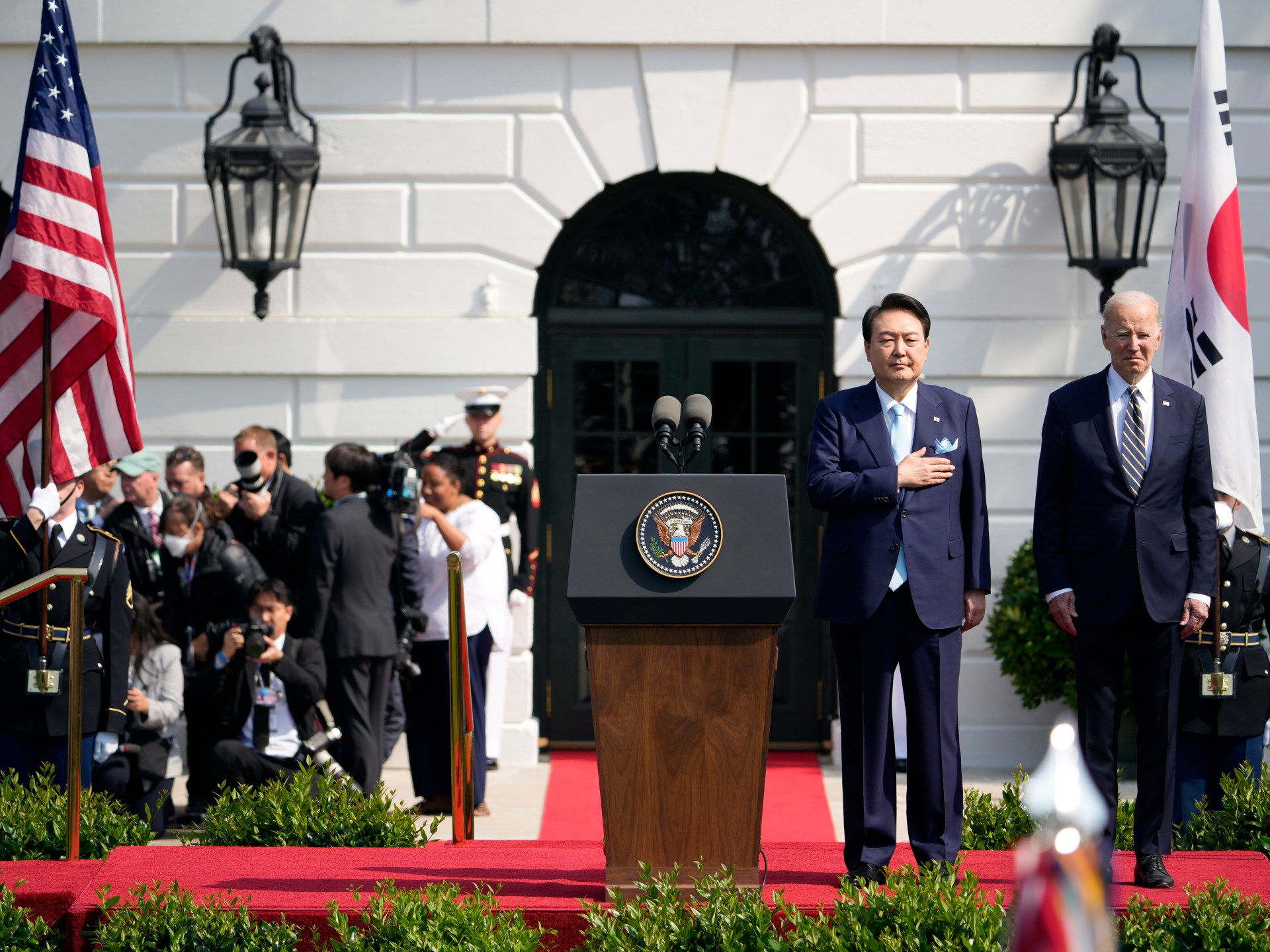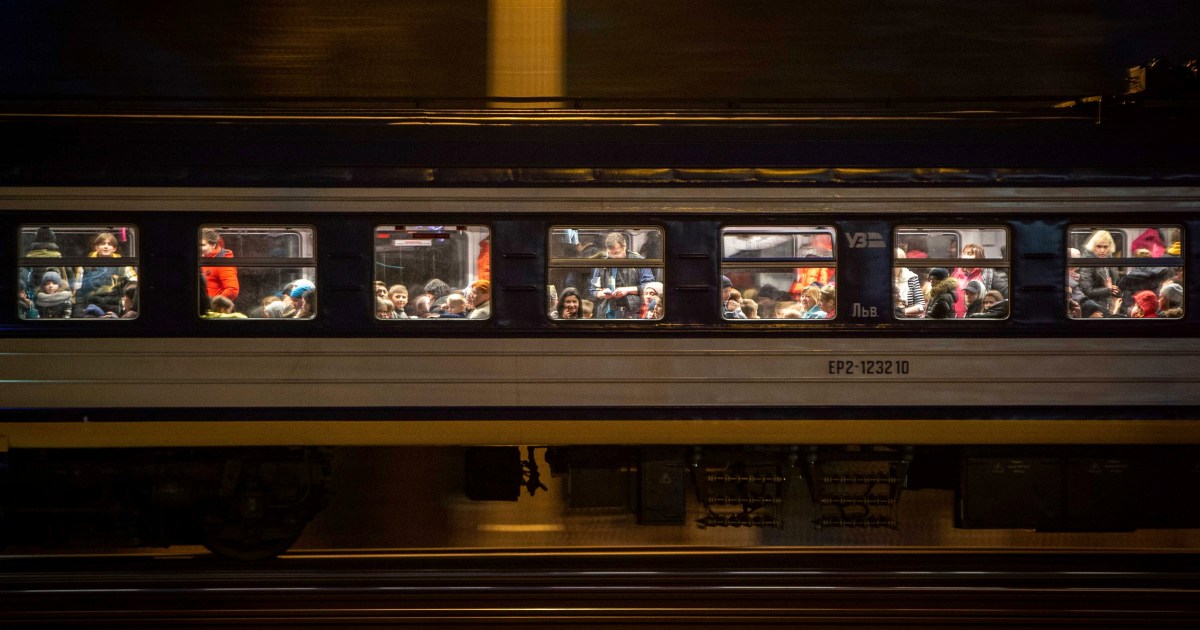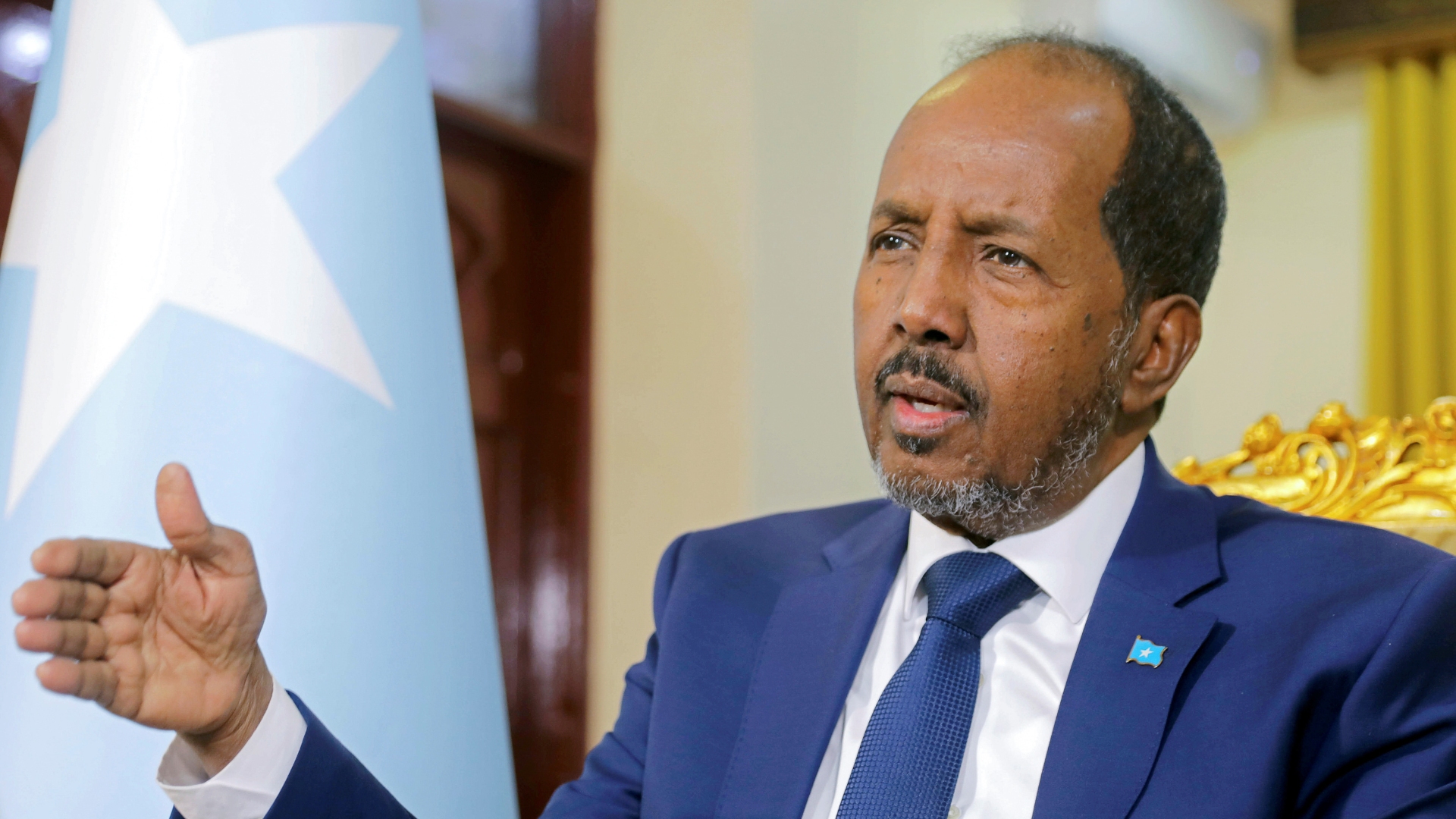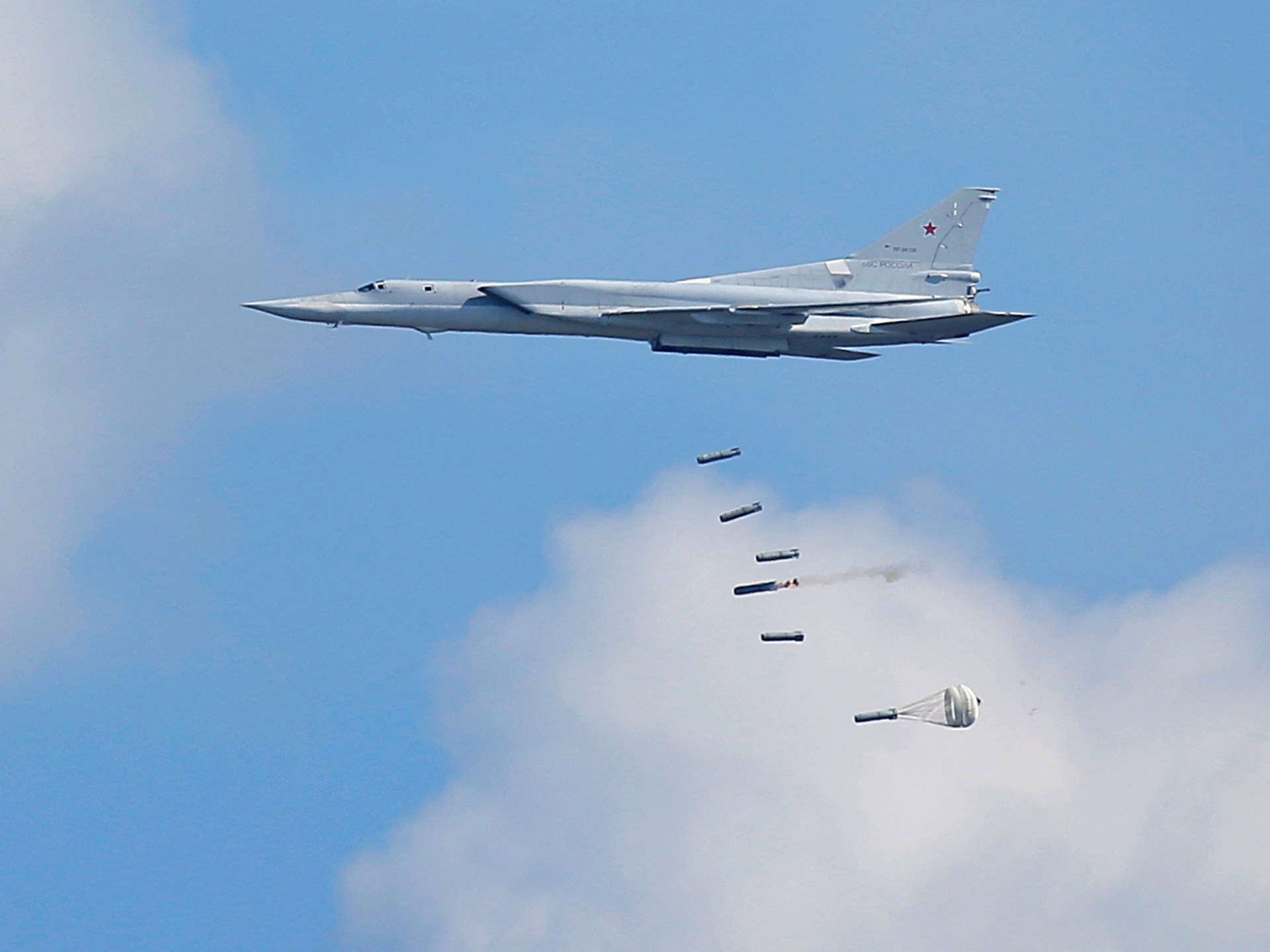South Korea-US summit to be topped by nuclear-armed sub agreement | Joe Biden News
United States President Joe Biden and South Korean President Yoon Suk-yeol will sign an agreement to send nuclear-armed US submarines to South Korea during a highly anticipated White House summit, according to US officials.
The agreement is set to be announced on Wednesday as the two leaders meet in Washington, DC to mark the two countries’ 70-year alliance. Yoon is only the second leader, after France’s Emmanuel Macron, to be hosted by Biden in an official state visit at the White House since the US president took office in 2021.
The submarine deployments will be a major component of a wider strategy aimed at deterring North Korea from carrying out an attack on its neighbour, three Biden administration senior officials told reporters on the condition of anonymity.
That plan, dubbed the “Washington Declaration”, will be announced as North Korea’s increased pace of ballistic missile testing – and apparent recent breakthrough – have heightened anxieties among the US and its regional allies.
The deployment of nuclear-armed submarines to the Korean Peninsula “has not happened since the early 1980s”, one senior official told reporters, adding they would be among an array of “strategic assets” that would be regularly deployed to South Korea “to make our deterrence more visible”.
That would include a “regular cadence” of other major platforms, “including bombers or aircraft carriers,” the official said.
“We’ll strengthen our training, our exercises and simulation activities to improve the US-ROK (Republic of Korea) alliance’s approach to deterring and defending against DPRK (Democratic People’s Republic of Korea), including by better integrating ROK conventional assets into our strategic planning,” the official said, referring to South and North Korea by their official acronyms.
US nuclear-armed ballistic missile submarines made frequent port visits to South Korea in the late 1970s amid the Cold War, a period when the US had hundreds of nuclear warheads stationed in South Korea.
In 1991, the US withdrew all of its nuclear weapons from the Korean Peninsula, and the following year Seoul and Pyongyang signed a joint declaration pledging that neither would “test, manufacture, produce, receive, possess, store, deploy or use nuclear weapons”.
But as Pyongyang has repeatedly violated the joint declaration over the years, there has been increased support in South Korea for the US to return nuclear weapons to the country.
A poll released on April 6 by the Asan Institute for Policy Studies in Seoul found 64 percent of South Koreans supported developing nuclear weapons, with 33 percent opposed.
Meanwhile, stepped-up testing by North Korea, including the flight-testing of a solid-fuel intercontinental ballistic missile for the first time earlier this month, have further heightened concerns. The test was seen as a possible breakthrough in Pyongyang’s efforts to acquire a more powerful, harder-to-detect weapon that could target the continental US.
US officials previewing the new initiative to reporters stressed that there are currently no plans to station US nuclear weapons in South Korea. As part of the declaration, they said, South Korea will reaffirm its commitment to the Nuclear Non-Proliferation Treaty, the officials said.
The officials added that Biden’s and Yoon’s aides have been working on details of the plan for months and agreed that “occasional” and “very clear demonstrations of the strength” of US extended deterrence capabilities needed to be an essential aspect of the agreement.
One official said that steps are being taken in advance to defuse any potential tensions with Beijing over the tougher military posture.
“We are briefing the Chinese in advance and laying out very clearly our rationale for why we are taking these steps,” the official said, adding that the Biden administration is “disappointed that China has been unprepared to use its influence” on North Korea.
Support for Ukraine
Besides the deterrence plan, Biden and Yoon are also expected to discuss Russia’s continuing invasion of Ukraine.
The Biden administration has recently praised South Korea for sending some $230m in humanitarian aid to Kyiv, but has indicated it would like to see Seoul take an even bigger role in supporting Kyiv.
Yoon’s visit came just weeks after the leak of highly classified US documents, including one that appeared to indicate that South Korea’s National Security Council “grappled” with the US in early March over a request to provide artillery ammunition to Ukraine.
One Biden administration official said that Biden planned to talk to Yoon about “what it means for all like-minded allies to continue to support Ukraine” and ask the South Korean leader “what the future of their support might look like”.
On Tuesday, Yoon and Biden visited the Korean War Memorial – life-sized steel statues depicting US soldiers marching during the 1950-53 war against the North.
Yoon also laid a wreath at the Tomb of the Unknown Soldier in Arlington National Cemetery and joined US Vice President Kamala Harris for a tour of a NASA space facility near Washington, DC.
A state dinner is to be held at the White House on Wednesday evening.




